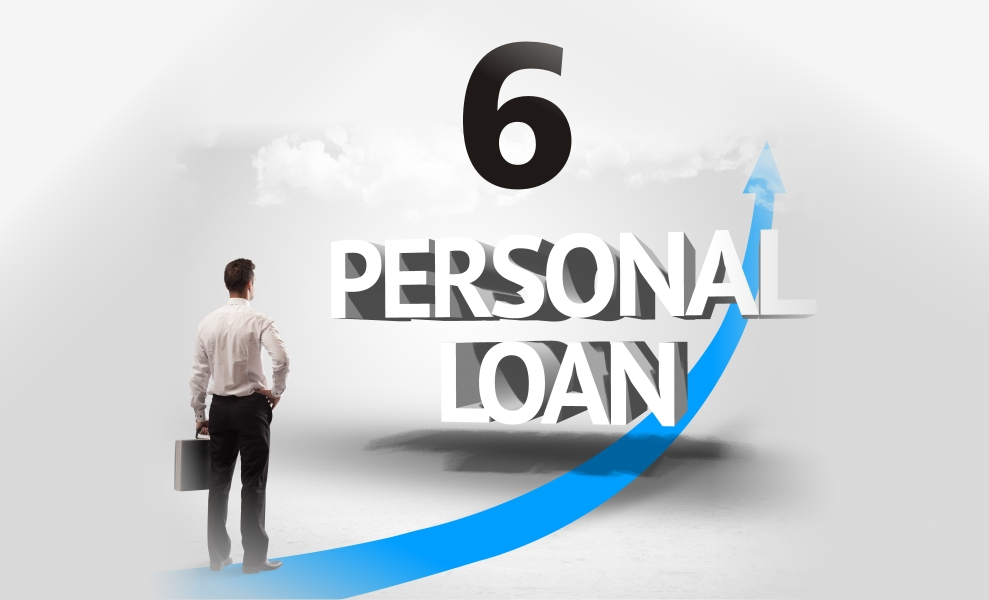6 Factors Affecting Your Personal Loans Interest Rate
At some point of time in our lives, we all need some financial assistance. It can be as simple as getting an air conditioner or something as expensive as organizing your children’s wedding ceremony. At this time, a Personal Loans comes to your aid. .
What is a Personal Loans?
A Personal Loans is an amount that is borrowed from a financial institution. This loan is then repaid to the lender by the borrower in the form of monthly installments called EMI. The EMI includes a percentage of interest that the borrower pays to the financial institution for lending the funds. A Personal Loans can meet several financial requirements like buying a house, medical emergencies, home improvement, education, buying gadgets, and even going on vacations. All your dreams can now be fulfilled by simply borrowing a Personal Loans.
Eligibility for a Personal Loans
Borrowing a Personal Loans is becoming easier each day. As financial institutions and banks are in a neck-to-neck competition with each other, several efforts are being made to make the process quick and hassle-free. Eligibility to apply for a loan can be checked online with a few clicks. All you need to do is provide some details like your income, current obligation, credit score, etc. and you’ll be able to see whether you are eligible to apply for a Personal Loans.
Personal Loans Apply with Ease
With a few quick clicks online you can apply for a Personal Loans. You will need some personal documents such as an Aadhaar card, residence proof, salary slips, etc. Whichever bank you choose to apply for a Personal Loans, go to their website and check your eligibility. Fill out the online application form if you are eligible and submit your documents. You will be notified soon if your loan is approved.
Role of Interest Rate in Personal loans
Interest rate is probably one of the most important factors to consider when you think of applying for a loan. Many financial institutions offer exceedingly attractive offers which end up being nothing but tricks to rope in customers. If you read the actual conditions written in fine print, you will find out that these loans are more expensive than claimed. Personal Loans calculator helps you with pre-calculating your EMI amount.
Factors determining Personal Loans Interest rate:
• Income:
Your income level plays an important role in your interest rate. Banks usually charge a lower interest rate from borrowers who have a higher income job as compared to a borrower who has a lower income job. Banks
tend to rely a lot on people with higher incomes for repayment of loans as the higher income suggests their good financial health, and thus a stronger chance of getting the repayment on time. A lower-income borrower is more likely to face problems
during the repayment which is why banks offer a higher interest rate to them.
• Repayment history:
This allows the banks to determine a borrower's tendency to repay the loan amount. A good repayment history
suggests you have good repayment discipline and you pay your EMIs on time without defaults. Banks might happily offer you a lower rate of interest if your repayment history is good. Your profile will be considered lower risk and you will be able
to obtain loans easily with lower interest rates.
• Credit score:
Your credit score is a number that shows your creditworthiness. It shows your financial health and helps establish a certain degree of trust
between you and the lender. Maintaining a good credit score will not only help you be more eligible for a Personal Loans but it will also help increase your chances of actually getting the loan approved. A good credit score helps the lender establish
the fact that you will repay the loan amount and therefore they will certainly offer you a lower rate of interest especially when it comes to a Personal Loans.
• Lender-borrower relationship:
A loyal relationship
plays a significant role in the rate of interest charged. If you are a trusted customer your lender will charge a lower interest rate since you have built a good relationship with them over the years. Your relationship with your lender is likely
to make your lender charge a low or high rate of interest therefore it is important to build a trustworthy relationship with your bank early on.
• Debt-to-Income Ratio:
This factor determines the current
debts you have as compared to the current income you earn. If you have a high salary but most of it goes to the payment of current debts you are under, the bank offering you a loan might charge you a higher rate of interest since it is considered
risky. A high debt-to-income ratio is considered a burden on the borrower and therefore banks are likely to charge a higher interest rate from someone with a high debt-to-income ratio.
• Defaults:
When you
delay or fail to pay the EMI on time, it is considered a default. Your lender will always check your history of defaults as it is a factor that helps them determine whether you are a reliable borrower. Banks will charge a high rate of interest
from a borrower if they have a history of defaults. They might even reject the loan application. A borrower with a clean default history is preferred by banks and is even offered a lower Personal Loans interest rate.



















